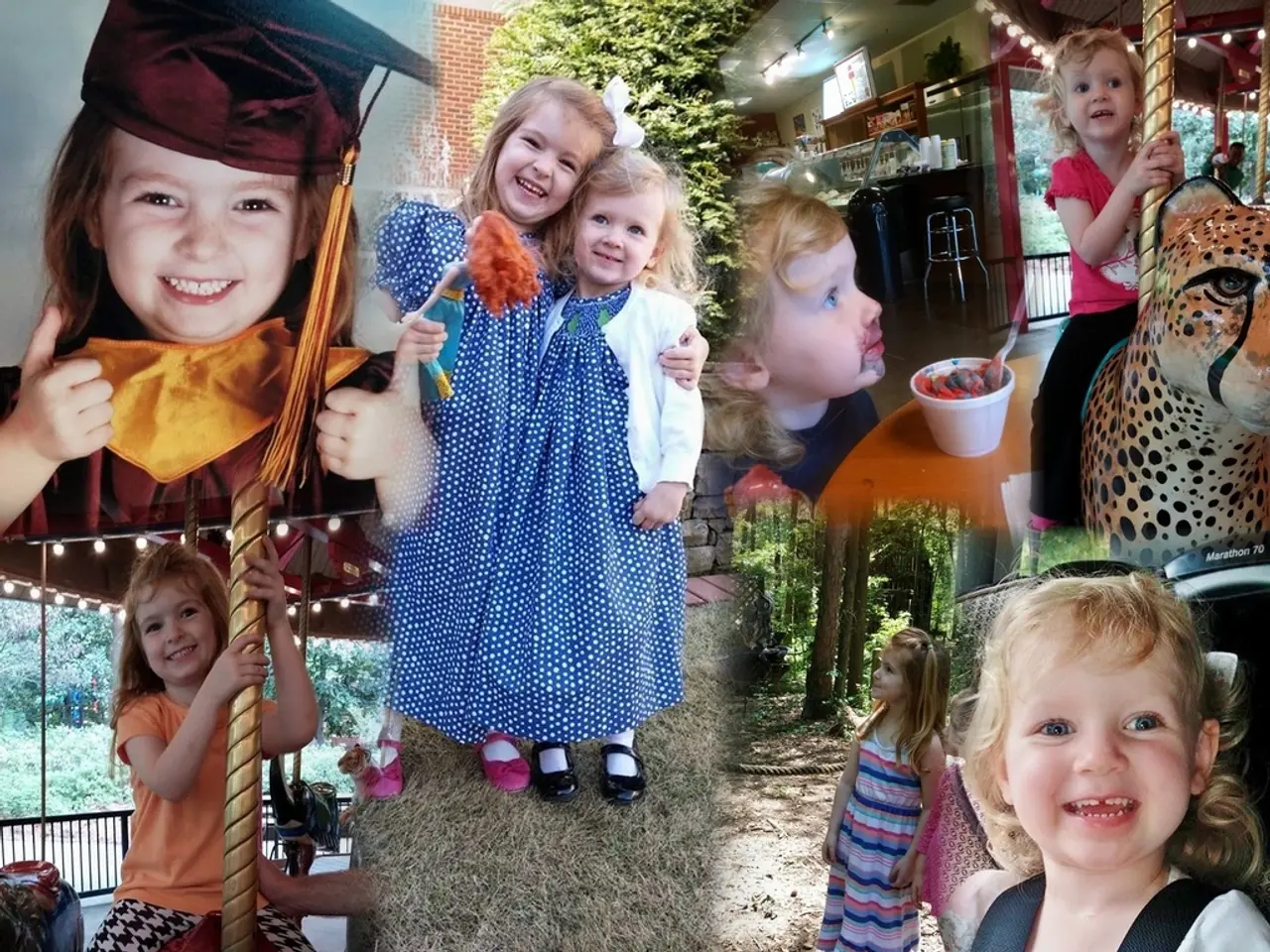Shaping Russia's Foreign Policy Through Putin's Perspective: Fearing a Fate Similar to Gaddafi's
Putin's GeopoliticalManifesto:
Vladimir Putin, Russia's President, dropped a bombshell at the St. Petersburg Economic Forum, claiming, "Wherever a Russian soldier trods, Russia is there." It's a powerful phrase that merges two powerful ideologies: Russia's revisionist claims on historical territories and the dubious notion of an inseparable bond between Russians and Ukrainians - a twisted fusion of conquest and cultural legitimacy. It'
s a message that demands attention, not just for the rhetoric, but also for the strategic timing. As Kyiv grapples with military pressure and Western capitals mull over possible negotiation strategies, security guarantees, and territorial concessions, Putin seized the St. Petersburg stage to crush any semblance of Ukrainian negotiation autonomy.
Crafting a Stronger Russia:
Putin's geopolitical agenda goes beyond the Ukrainian issue. He's aiming to build a Russia that's economically self-reliant, technologically independent, and strategically resilient in the face of international pressures, including sanctions. This involves transforming the economy from a reliance on imports to a self-sufficient model that produces high-tech, high-value goods and services. To achieve this, Putin intends to strengthen domestic industries, invest heavily in research and development, and focus on labor-intensive sectors to increase employment and reduce vulnerability to external sanctions.
Tech Supremacy:
Putin is pushing for Russia to lead the global technology race by 2030, with increased investment in research and development. He's aiming for combined public and private spending of at least 2% of GDP to achieve this goal. This focus on technology is crucial for Russia to sustain its economic health and remain competitive on the global stage.
** Geopolitical Tug-of-War:**
Putin's speech also touched upon the rapidly changing geopolitical landscape and Russia's need to respond accordingly. He emphasized the importance of strengthening ties with partners like China, India, and nations in the Global South to create a multipolar world that's less dominated by the West.
Ukraine: The Unspoken Conflict:
While the conflict with Ukraine wasn't the main topic, it's clear that the situation in Ukraine is a significant backdrop influencing Russia's agenda. The conflict with Ukraine has led to economic sanctions and geopolitical isolation from Western countries, which in turn shapes Putin's push for economic self-sufficiency, technological independence, and stronger alliances outside the Western bloc.
In essence, Putin's geopolitical agenda is about strengthening Russia internally, achieving economic sovereignty, and forging ties with new economic partners to sustain its strategic interests, even in the disputed region of Ukraine. It's a risky game of brinkmanship that could reshape the geopolitical landscape for years to come.
- The general news is abuzz with discussions about Putin's geopolitical agenda, which tactfully intertwines war-and-conflicts, politics, and economic strategies, as demonstrated in his speeches about Ukraine, economic self-reliance, and technological independence.
- In the realm of politics, Putin's geopolitical manifesto may strategically use war-and-conflicts, such as the ongoing scenario with Ukraine, to justify his ambitious plans for a stronger Russia, aiming to forge partnerships with powers like China, India, and nations in the Global South, creating a multipolar world less reliant on the West.






